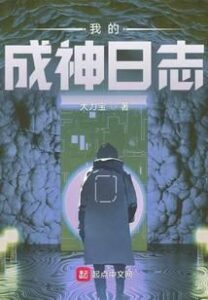Chapter 49: Principia – 1
The technological development in this world was exceedingly bizarre. At least, that’s how it appeared to me, someone who had lived on Earth in a past life.
Especially when it came to transportation technologies. Despite the existence of factories and printing presses indicating some level of technological prowess, there was hardly anything that could be called “modern transportation” apart from transcontinental trains crossing the Empire and neighboring countries.
No airships or submarines? Come on! Even if such technologies didn’t exist, their existence was widely known. Yet, the nobles still preferred carriages over cars, and I had never heard of planes or submarines being used as “means of transportation.”
So, there were a lot of things I found pretty puzzling up till now─.
“Wow, that’s terrifying!”
“Hoho, is that so? It’s a familiar sight for a mage…”
Well, that cleared some questions right up. Seeing the wrecked airplanes all mangled and stuck at the test airfield owned by the Magic Tower definitely reinforces the idea that “planes = death” was the prevailing logic here.
“Uh, are these unfinished prototypes made for experiments?”
“Nope… they’re all complete products… Just a few have been statistically proven to be ‘flyable’ a couple of times…”
“Then why are they all in this state?”
“Uh, probability issues…”
“Excuse me?”
The mage kindly took about 30 minutes, mixing a dose of self-praise and a splash of past stories, to explain what the problem was.
The whole ‘magic studies’ thing in this world was quite beyond my grasp─ but at least I grasped a tidbit of it. To summarize what I understood:
“So, you can’t really build overly complex machines?”
“It’s not that we can’t make them… it just takes a whole lot of time and budget, that’s all…?”
In this world, long-term operation of ‘complex machines’ was impossible, thanks to ‘magic,’ which just loved to mess around with ‘probability.’
Take an airplane, for instance; the chances of it crashing could stem from several factors. The structure might not provide enough lift, there could be an engine malfunction, or it might just fail to balance and plummet like a rock. Normally, these issues could be avoided with proper maintenance.
As you crank up the machine’s complexity, however, ‘magic’ turns the probability of breakdowns into a chaotic mess that becomes indistinguishable, messing with things like a kid in a candy store.
It was almost like the very concept of ‘complexity’ was being rejected.
“If we gather enough data to predict everything, make as many planes as possible to standardize them… it could work… but the history of ‘trying to fly and then crashing’ is just way too deep… securing a budget for that kind of thing is a tall order…”
“I see.”
“Being a mage is a real headache, you know…?”
Unlike the relatively simple printing presses that had received massive funding for ‘printing scriptures,’ transportation methods had way too many variables.
“Once you latch onto a certain level of ‘probability,’ things get a lot easier. Once you establish a route, the chance of accidents while traveling the same path plummets dramatically. That’s why trains running along rails were commercialized so quickly.”
“Yes, I understand. But why did you call me here?”
“Well, I wanted to ask Herodotus the author to use some magic…?”
“Pardon?”
“I would really like it if you could lend us your magic.”
“Excuse me?”
* * *
A fair chunk of time had passed since I was reincarnated in this world, but I had never once considered learning ‘magic.’
Honestly, I was such a weirdo that instead of marveling at supernatural stuff like magic, I spent all my time reading another book. So, the very thought of me using ‘magic’ never crossed my mind.
“To be precise, what we need is your magical imagination.”
“Hm, what exactly is this ‘magical imagination’? I think something like this came up last time.”
“It’s the ability to concrete possibilities.”
The chief mage smiled and led me somewhere. It wasn’t far away; it was where the wreckage of the crashed airplanes was stuck.
The mage picked up a couple of slender wooden pieces and started stacking them in a grid, creating a small altar-like structure.
“There are various concepts and methods for realizing magic, but let’s start with the most common technique from the Blue Magic Tower. The Blue Magic Tower operates on the premise that ‘similar things resemble each other.’ For example, a small twig by itself is just a raw material that can become anything, but if you stack it like a campfire and add some dry leaves in between…”
When the mage snapped her fingers, a tiny bright yellow flame erupted from the small altar—or rather, the campfire model. The flames gobbled up all the dry leaves and died down quickly, leaving only embers behind.
“Just like this, we can start a fire. So, the mages of the Blue Magic Tower spend their days building, installing, and reproducing things. Honestly, it’s basically a junkyard there.”
“I see.”
“And now, let’s try the method from the White Magic Tower. The White Magic Tower works on the premise that ‘the same event happens in the same place.’”
The mage pulled out a piece of paper from her pocket and deftly folded it into a ‘paper airplane.’ Once she threw the paper airplane, it flew well but suddenly nosedived almost exactly where the wrecked airplanes lay.
“So, the mages of the White Magic Tower travel around daily, recording the things that occur there, and researching the similarities between different spaces. That’s why the White Magic Tower is so dull because everyone is outside. There’s even a story that explains why sick people going on a ‘pilgrimage’ to the place where the Savior resurrected get healed.”
“Ah, is that so?”
“Honestly, aspects of the church’s business and blessings are murky for me, so we just accept it as is.”
The mage shrugged and now picked up a thick branch before lightly hitting the wreckage of the airplane. The seemingly sturdy branch snapped open absurdly easily, just like the airplane remnants.
“At the Red Magic Tower, the premise is that ‘similar effects can be observed when similar objects come into contact’… This was the same method I used to boil water in a kettle and brew tea…”
“Ah, I see.”
“And there are also the Purple Magic Tower, which deals with the human mind based on the belief that ‘human perception is flawed and can mistake anything for something else’… and the Black Magic Tower believes that ‘if you can’t predict what might happen, then anything occurring isn’t weird’…”
“But, Chief Mage, aren’t you from the ‘Gray Magic Tower’?”
“Hoho… That’s right. The magic of the Gray Magic Tower that I pursue is akin to the root of all magic and the obvious definition of all possibilities…”
With a proud grin, the Chief Mage thumped his chest happily.
Then, it seemed he hit it a bit too hard because he winced out, “Ouch ouch…” bent for a moment, and then seamlessly continued his explanation as if nothing had happened.
“The Gray Magic Tower investigates magic based on the idea that ‘if the causes are the same, then the outcomes are the same’… Understanding cause and effect, karma, past and future, causality… Every event has a causal relation, and our goal is to uncover that cause and replicate the outcome… Hohoho…”
“That sounds quite impressive.”
“We’re also the ones who perfected the standard ‘printing press’ that’s being used in the Empire… Especially in the sphere of dealing with these ‘machines,’ we reign supreme… There’s no clearer causal relationship than the action of force…”
“Ah, I see.”
So, the Gray Magic Tower was really like the engineer club. No wonder the Chief Mage always looked like he was wearing dark circles under his eyes.
I glanced at him, feeling a strange and slightly amused sensation.
The mage was so lost in his explanations that he continued speaking in a voice that was almost tipsy with enthusiasm.
“And from my point of view as the Chief Mage, Mr. Herodotus possesses a natural talent for the ‘Gray Magic Tower’… The ability to perceive causal relationships… Like the deductive reasoning seen in Sherlock Holmes and the magical imagination shown in Twenty Thousand Leagues Under the Sea… I believe Mr. Herodotus could definitely handle it…”
It sounded almost mystical, like some kind of blind seer’s prophecy.
“To write a book on magic…!”
* * *
After that fascinating meeting with the Chief Mage, I casually leaned back in the chair where I usually read and got lost in thought. The narcissistic mage’s request loomed large in my mind, refusing to fade.
The more I thought about it, the harder it seemed to shake off.
Was this some sort of ‘magic’ too? Who knows.
“Magical imagination….”
Magical imagination. If I were to borrow from my past life’s memories, it leaned closer to ‘scientific imagination.’ It seemed to belong more to natural sciences and engineering than literature.
Putting that into a ‘book’ shouldn’t be particularly hard. I hadn’t only translated literary works; I had often worked on non-fiction too. In fact, during my undergraduate days, I had gone through more non-fiction papers than literature.
Not for any special reason, just because I was in the science field.
A conversation with a junior from my past life flashed back.
– “Huh? Senior, did you graduate from an engineering school?”
– “Yeah… it really didn’t suit me, though. Do I not seem like it?”
– “No, it’s not that you don’t seem like it. It’s just that you have a really strong literary vibe. You translate directly from French to English, Russian, and German without any middle language. So, I thought you came out of translation and interpretation graduate school.”
– “I did graduate from a translation and interpretation program. But that’s how my undergraduate years were.”
– “Why?”
– “What kind of question is that?”
– “Were you a bit of an engineering student back then?”
– “What do you mean by ‘engineering student-like’? That I wouldn’t be popular with the ladies?”
– “No.”
– “Wow, you’re quite assertive.”
– “So, why did you choose to go to engineering school?”
– “Because I was a science major. Back then, cross-application was pretty tough.”
– “So why the science major?”
– “Why all these questions? I was curious about lots of stuff… thought literature would be boring.”
– “What?”
– “Humanities classes involve stuff like ethics, sociology, economics, law, history…”
– “Law? What’s that?”
– “Law and politics.”
– “Aren’t you mixing that up? Shouldn’t it be politics and law?”
– “Huh? Isn’t it law and politics? Well, it’s been a while, and I don’t remember too well. Anyway, I read through the textbooks and reference books for those subjects before selecting my electives…”
– “You actually read those?”
– “That’s called being a literary person. But I already knew everything! I thought I could intuit most exam questions anyway.”
– “And then?”
– “Uh? Since learning stuff I already knew felt like a waste of time, I decided to study what I didn’t know and went into science instead.”
– “Senior.”
– “Yeah?”
– “Are you out of your mind?”
– “You have no qualms about saying that to your senior…”
Anyway, for that reason, I was half a science major back in the day.
Thanks to that, translating non-fiction wasn’t such a hassle. Just a bit of hesitation here and there.
The reason for spreading adventure trends and ‘this world’s laws’ came down to reducing the influence of ‘Earth.’
To speed that up, is it right to spread ‘Earth’s science’ here? I really can’t say.
“Hmm… magic, magic…”
Honestly, I believe there are definitely aspects where different laws are at play in this world compared to my past life. There are things like the World Tree, and beastmen can be kind of tricky beings from a biological perspective in my previous life.
But there are also clear similarities.
Gravity, action and reaction, inertia, light—these laws and principles are absolutely necessary to maintain this ‘physical world.’
So it seems logical to start with the ‘obvious’ things.
Not the science of my past life, but the more self-evident and clear truths of the matter. I pulled a manuscript from the nightstand and plopped it on the desk.
On the front cover of the manuscript, the title was glaringly apparent:
[Principia]
Principia. The Mathematical Principles of Natural Philosophy.
Author: Isaac Newton.
“Ugh, suddenly hitting high school PTSD here…”
Even after picking chemistry and physics as my electives and graduating from engineering school, science never really clicked with me.
Not one bit.
You may also like Mesugaki Tank Enters The Academy







